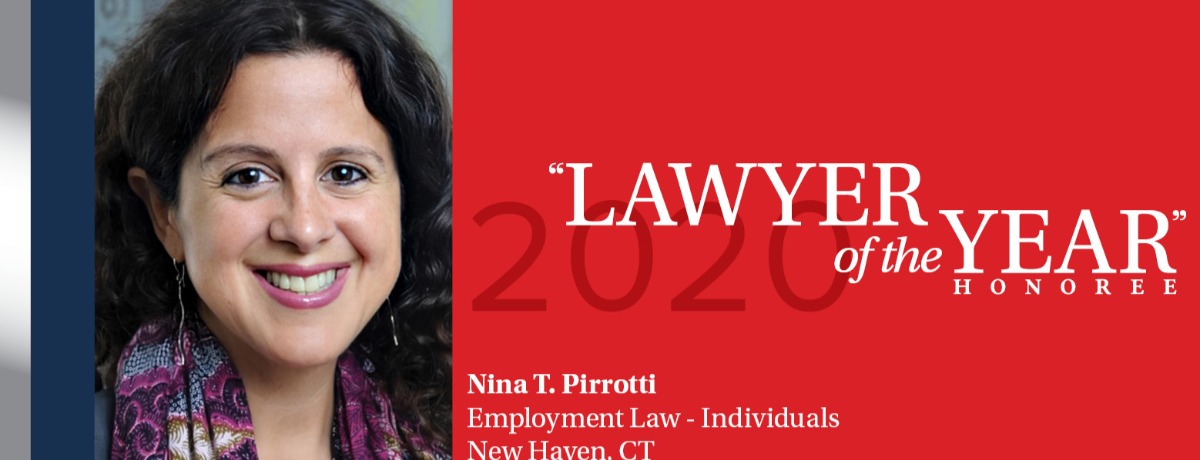An employee handbook is one of the most important components employment attorneys advise companies to have and update regularly. The reasons for this are simple: employee handbooks not only formalize guidelines, expectations and terms and conditions of employment, but more importantly, they can also help provide a layer of protection against employee claims and lawsuits.
A thorough and detailed employee handbook, reviewed and signed by the employee, establishes that both company and employee are aware of the employee and company’s legal rights and obligations. In addition, should the business ever face an employee claim or lawsuit, their handbook also serves as a helpful legal defense by demonstrating that the company strives to operate in compliance with all relevant federal, state, and local laws.
Understandably, developing an employee handbook from scratch can feel like an overwhelming task. An experienced employment attorney can help you create a comprehensive handbook that addresses the most fundamental policies. If you decide to strike out on your own, however, the following is a list of essential topics to address:
Compensation and benefit policies
Vacation, sick and paid or unpaid leave policies
Dress code
Workplace safety and security policies
Non-disclosure agreements and conflict of interest statements
Internet usage policies
How to file or report workplace complaints
Equal employment, disability and anti-discrimination policies
Workers compensation policies
Once your handbook is in place, this is not a case of “set it and forget it.” Instead, you’ll want to review it annually, ideally in partnership with your employment attorney, and make necessary updates. These could include changes to corporate policies or local, state or federal laws and regulations. Some timely employee handbook updates that I’m advising my clients to address in 2022 include:
Vacation policies. In 2021, the Colorado Supreme Court ruled that if an employer provides paid vacation, any accrued and unpaid vacation time is considered earned wages and must be paid out at the end of the employment relationship. It’s important to note that this ruling applies to any employer who employs workers in Colorado, no matter where the business is headquartered. In an era of remote work, that is an important distinction. This change does not apply to paid time off (PTO), which typically includes vacation, as well as sick or personal time off. While the Colorado Supreme Court’s ruling was tied directly to a case in which an employee was denied payment for unused vacation time at separation, employers will be best served to err on the side of caution and assume that the ruling will also be applied to any vacation policy that requires employees to forfeit unused time at the end of the year.
Do Now: Remove any use-it-or-lose-it language as it pertains to vacation time. As an alternative, employers may decide and are legally entitled to cap the amount of vacation time employees can accrue.
COVID-19 and Sick Leave Policies. The COVID-19 pandemic has created an ever-changing patchwork of federal and state policies and acts related to paid sick leave provisions and tied to federal and state government declarations of public health emergencies. For example, in Colorado, employers must supplement paid sick leave until four weeks after the official termination or suspension of the federally declared public health emergency. Currently, the U.S. government has extended the nationwide COVID-19 public health emergency through January 16, 2022, unless renewed. As such, the Colorado HFWA requirement for supplemental paid sick leave does not expire until February 13, 2022.
Do Now: Check with an employment attorney to determine the specific COVID-19 sick leave requirements that apply to your business and update handbooks accordingly.
Respecting LGBTQ Rights. Workplace standards related to gender identity and sexual orientation have changed markedly in recent years, emphasized by a recent landmark U.S. Supreme Court decision that declared it illegal for employers to discriminate against LGBTQ employees.
Do Now: Your employee handbook should clearly identify and strictly prohibit workplace missteps that are not only offensive to LGBTQ employees but can also open the company up to discrimination, harassment or hostile work environment claims. Include gender identity, gender expression and sexual orientation among the list of protected categories in your employee handbook. Review all policies (dress code, vacation, email signatures, gender-segregated spaces, etc.) to confirm they are inclusive of LGBTQ individuals. The Human Rights Campaign provides an extremely helpful and comprehensive employer toolkit to assist employers in this effort.
Maternity and Paid Family Leave. Beginning Jan. 1, 2024, Colorado’s Paid Family and Medical Leave Insurance Act (FAMLI) will require employers to provide 12 weeks of leave, with an option for four more weeks for birth mothers with complications. Notably, the leave isn’t limited to parents of new babies—employees can utilize the benefits for other reasons, such as recovering from or receiving treatment for an illness, caring for a family member or other approved circumstances.
Do Now: Although this requirement doesn’t go into effect until 2024, I’m advising employers to get out ahead of the trend now and implement a similar policy sooner rather than later. Doing so will help avoid the unflattering optics of denying employees a benefit in 2022 or 2023 that they would be legally entitled to in 2024.
Remote Work, Workplace Safety and Vaccine/Mask Policies. The preponderance of employees who now work remotely for all or part of the workweek, combined with vaccine and mask requirements for in-person work, reflects just how much COVID-19 has changed the workplace.
Do Now: Clearly outline remote work policies in the employee handbook, including any parameters around eligibility, office hours and expectations and company-provided equipment usage. Include vaccination, mask and COVID-19 testing and quarantine policies in the handbook. The Department of Labor’s Occupational Safety and Health Administration (OSHA) has issued helpful guidance for employers on mitigating and preventing the spread of COVID-19 at work. Consult with an employment attorney if you do not clearly understand the federal, state, and local vaccine and mask mandates to avoid potential employee discrimination or litigation claims.
Dress Code. Employers may be surprised to know that company dress codes and grooming policies could lead to various legal claims regarding discrimination and stereotyping. For example, a dress code that prohibits certain kinds of ethnic dress, such as traditional African or East Indian attire, but otherwise permits casual dress would treat some employees less favorably because of their national origin. In addition, Colorado law explicitly protects certain hairstyles, such as braids, locs and cornrows, that are commonly or historically associated with race.
Do Now: Review your dress code to ensure that it is not discriminatory with regard to gender, race, or national origin. For example, it should not prohibit certain hairstyles commonly or historically associated with race. And employers must be willing to modify their dress codes or permit an exception if a religious accommodation is requested.
Employee handbooks should be living, breathing documents that keep employees informed about the latest policies and expectations. When in doubt, seek the counsel of an experienced employment attorney to assist you in identifying blind spots and ensuring that your handbook helps limit the company’s potential legal and financial exposure.






























